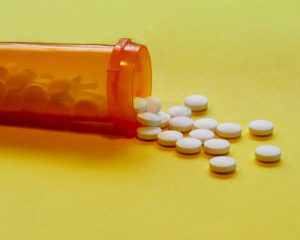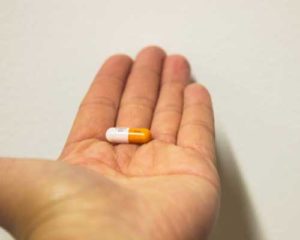Adderall is a popular drug that is used by children and young adults to treat complications caused by attention-deficit/hyperactivity disorder. A study was recently released highlighting the sharp influx of ADHD among children, saying, “There has been a dramatic rise in the past two decades going from 6 [percent] to 10 percent.”
The question asked in the article is whether these diagnoses represent a true increase in ADHD or if we’re just better at diagnosing the disorder now through continued medical education efforts. It’s tough to distinguish the difference, but that could be a meaningful answer in determining this new information.
In 2017, 14 percent of boys were diagnosed with ADHD in the United States versus a mere 9 percent back in 1997. Girls diagnoses were up to 6 percent from 3 percent two decades ago. In 2016, a total of 388,000 children ages 2 through 5 were diagnosed with the disorder, ages 6 to 11 2.4 million, and ages 12 through 17 at 3.3 million. This affects a large group of children, and while the exact reason for the increase in the disorder can be left up to debate, there is a real problem that requires a real solution.
So what is attention-deficit/hyperactivity disorder (ADHD) exactly? It is one of the most common mental disorders that affect children. It also affects many adults. Symptoms of the disorder include inattention (the inability to focus), hyperactivity (excess movement that is not fitting to the setting), and impulsivity (hasty acts that occur in the moment without thought). It can cause havoc in someone that suffers from its effects. Parents and teachers alike may think there is something wrong with the child, but often the young person requires medication to straighten out a chemical imbalance. Adderall has been the answer in many cases.
Adderall is one of those drugs prescribed in ADHD treatment that has the ability to transform those who have the disorder and give them a chance in school. With every great medication comes the possibility of being misused. Adderall misuse peaks between 18- to 25-year-olds, and is extremely common on college campuses. A lot of children who have prescribed Adderall as kids grow out of their symptoms as they get older but are still prescribed the medication. This can lead to selling the drug on campus as it is highly sought out as a study aid. Situations like these have caused an increase in emergency room visits attributed to Adderall use. While most people use it as prescribed, there are some who abuse the drug.
What is Adderall?

Dextroamphetamine-amphetamine, also known as Adderall, is a stimulant drug that is available through a doctor’s prescription. It is an extremely powerful central nervous system (CNS) stimulant that affects chemicals in the brain and nerves that contribute to hyperactivity and impulse control. It has the power to cause effects such as increased energy, increased concentration, self-confidence, and euphoria. It is designed to be long-lasting and increase concentration in kids or adults who suffer from focus problems related to ADHD.
Like most stimulant drugs, Adderall has the potential to become addictive when abused. Those who have a history of abusing drugs are more likely to become addicted to it. When it is used as prescribed and for its intended purpose at school or work, those who use the drug have less of a chance of developing a tolerance for it. When it is used in higher doses than a doctor would prescribe, or in a manner not consistent with its purpose, a substance use disorder can most likely occur.
Adderall is prescribed by doctors as a drug to be taken orally, but those who abuse it will crush the prescription pills into a powder and snort the substance for a more intense high. This can lead to fatal consequences because the drug was created as an extended-release formula to last during the day. When it is crushed and snorted, it is not distributed evenly into your system, and too much at once can cause an overdose. Stimulant overdose can lead to a coma, brain damage, and in some cases, death.
What Are the Effects of Adderall?
Adderall can affect its users in a different manner. Some who use the drug use it because they have a chemical imbalance while others use it to get high. Someone who requires the drug for balance will notice the effects slow them down and focus, while those who use it recreationally will be sped up and increase focus. Some of the most common effects associated with Adderall use include:
Side Effects
- Sleeping problems
- Shortness of breath
- Improved attention span
- Slowed growth
- Dry mouth
While no two people are the same, that goes for the effects as well. As mentioned above, some may experience a different set of effects. This will also be dependent on dose, age, and if someone has ADHD.
Signs of Adderall Abuse
The most impressionable times are during our youth, and those prescribed the drug carry a higher risk of abusing due to their age group. If you feel that either you or a loved one is abusing Adderall, there are outward signs to look for. Even when used as prescribed, the risk of developing a substance use disorder is still present. There are steps to be taken if a problem occurs, and you must reach out to your primary care physician immediately.
Signs of Adderall Abuse
- Taking a higher dose than the doctor prescribed
- Consuming the drug any other way than orally such as snorting
- Consuming for any other reason than medical need such as staying awake or studying
- Doctor shopping
- Obtaining the medication through other means such as a pharmacy
- Consuming more frequently than prescribed
Long-Term Signs and Symptoms
- Weakness or numbness in arms or legs
- Slowed speech
- Dizziness
- Hives
- Aggressive behavior
- Insomnia
- Mania
If you or a loved one shows any of the signs listed above, you must sit down with them and discuss treatment options. The only way to live a long and healthy life with an active addiction is to treat it early. While it may not seem like an issue in the short-term, long-term abuse of the drug can yield adverse results and cause irreversible health problems.
Adderall Dependence vs. Adderall Addiction
Dependence on Adderall is an expected physiological response to the stimulant drug. The person ingesting the substance has a physical dependence because of the interaction of the chemicals in the body. It can occur even when taken as prescribed, but not a psychological dependence as when someone abuses the medication to get high. It may require assistance from their physician to stop using Adderall due to how the chemicals affect the brain. However, the person won’t be mentally obsessing or craving Adderall.
Adderall addiction will refer to someone’s physical or psychological reliance on Adderall that comes with a specific set of behaviors. The individual is typically unable to cope when they stop using Adderall and will go to great lengths to obtain more of the medicine. The use of Adderall will become their top priority. When they run out of their prescription early because they took more than prescribed, it will leave them in withdrawal. It results in them doing anything to get more Adderall. Obsessive thoughts about stimulant drugs and cravings can be indicative of addiction.

Who Abuses Adderall?
While people tend to generalize Adderall users as high school and college students, many older people in our society use the medication as well. The average age that someone starts using Adderall is 23, according to a study released by the Diagnostic and Statistical Manual of Mental Disorders.
A typical user of Adderall is students and professionals. The drug increases someone’s ability to focus and stay awake longer. It makes it much more attractive to students and working professionals that face increasing demands at work or school. College students make up a significant portion of those who abuse the drug.
Athletes also have been shown to abuse Adderall to enhance their performance during practice or competition. Adderall contributed to record-breaking drug-related suspensions in the NFL in 2012.
Lastly, those with eating disorders often abuse Adderall to suppress their appetite. When someone becomes addicted to the medication with an eating disorder, they will require treatment that cares for both problems.
Adderall Rehab Procedure
The first step in the continuum of care is often medical detoxification. While stimulant withdrawal is not as serious as withdrawal from barbiturates or alcohol, it can still serve as a safe haven to those who are serious about getting off drugs.
This stage of care will allow the user to be supervised 24 hours a day up to seven days while focusing on stabilizing their mind and body. In case of any complications during detox, it is always the best option to have medical professionals within your immediate reach. In case anything does not go as planned, they could offer medication to alleviate uncomfortable symptoms of withdrawal.
During admission, the client will have gone through an assessment phase that will determine their course of action through the treatment process. It’s important to be aware that treatment will only be useful if used in a manner that is consistent with the client’s needs. In short, it must be a tailored fit. This could have the client placed in a residential treatment center, intensive outpatient facility, or outpatient treatment. This will all be determined by the severity of the addiction, and if there is a history of relapse.
While there are many options in where you could be placed, therapy sessions take place in all levels of care. These therapy sessions will allow you to get to the root of your addiction and gain traction in your life. This will also teach you how to cope with triggers once they present themselves outside the comfort of treatment. These therapies include:
- Individual therapy
- Cognitive-behavioral therapy
- Family therapy
- Group therapy
These therapies are all designed to increase the clients’ awareness of their disease and equip them with the necessary tools required to survive in life after treatment.
Adderall Abuse Statistics
- 1 in 10 high school students has admitted to abusing a study drug.
- 90% of full-time college students who used Adderall non-medically in the past year were binge alcohol users
- 76% acquired it from a friend with a prescription.

